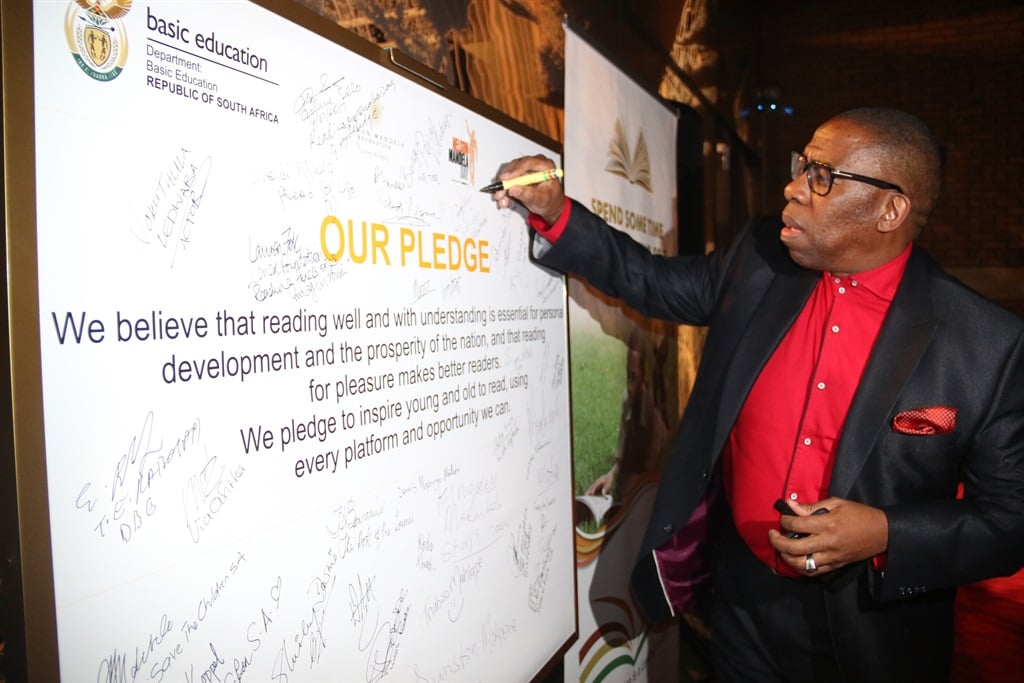
Books have continued to be a source of content whether it is at a dinner table or any other gathering work or social. Yet the sad reality is that we live in a generation where our daily reading habits are largely centred on tweets and Facebook updates. Or for the more health conscious, the directions at the back of a food item.
There have been many studies and reports published on how to address the challenge of making reading cool and interesting. Despite the invention and pace of social media. I believe taking to reading will happen when people are able to read what matters to them.
The books we read should be relatable to the reader in language and narrative. They must reflect my lived experiences for them to interest me.
According to Basic Education Minister Angie Motshekga, books and reading are one practical way of ensuring that South Africans get into a culture of reading that holds the possibility of transporting a young girl to the busy streets of New York from her small village in Limpopo.
Rethinking education and the cultures we want to introduce needs to go beyond leisure reading.
South Africa currently spends a higher proportion of its budget on education than the US, Germany or the UK, yet we have many pupils who still lack the skills to even participate in the leisure of reading. This should direct the minister toward fixing the problems that currently exist in our education system.
The World Economic Forum’s 2016-2017 global competitiveness report rated South Africa’s higher education system at 134 out of 138 countries. This speaks to an increased urgency toward ensuring that the education establishments and the focus of our ministers’ programmes are able to address the greater and foundational needs of our country.
More so at basic education level, where a foundation is most critical toward the building of the country’s future leaders or “readers” as the minister would have it.
Education establishments need to have another look at their legacy model and incorporate a curriculum that focuses on skills, vocational education and training. And support to a change of the school curriculum to reflect our developing world and, in doing so, to equip schools and teachers accordingly.
The Read to Lead Reading Ambassadors is an initiative and part of the department of basic education’s five-year plan to “create a culture of reading throughout South Africa”.
The purpose of the launch of the reading ambassadors last week was to introduce a new phase of the campaign by including a number of celebrated figures, from various parts of society.
Author of Kasi Nerd, Tebogo Ditshego, who was also the programme director at the launch, said: “It is time we made reading ‘cool’. And realise how it will take your organisation to the next level. Let’s contextualise the importance of reading, and acknowledge it for the influence it has in all facets of life, be it sports, the arts or business.”
Trustee of the Nelson Mandela Foundation, Nikiwe Bikitsha, highlighted the possibilities reading gives to us.
“Reading can be transformative in many ways. We must encourage reading not only for its utility but for its enormous transformative power in our lives and the pleasure it brings.”
Another keynote speaker was one of the campaign ambassadors, Grade 6 learner from the Diocesan School for Girls, Nikitha Xhanti (12), who highlighted bad habits associated with technology.
“Many kids spend too much time looking at a screen. Parents want children to be hands-on and entertained with gadgets which affects their health,” she said.
Motshekga expressed the department’s hopes to actualise the reality of a culture of reading beyond the classroom.
The minister believed this was possible through the support of the celebrated public figures, such as music legend and Black Entertainment TV (BET) international global good star and power award winner Mama Yvonne Chaka Chaka, Lucas Radebe and author of To Quote Myself, Khaya Dlanga.
“When a young child sees someone they look up to read, they too will want to read,” said Motshekga.
While I think that knowing that Yvonne Chaka Chaka reads may interest me to read, I do believe it will require more than a model of reading for me to get into a habit and culture of reading.
The education status quo relies on awarding pupils within a system that offers fewer opportunities for innovation, and a greater focus on rewarding pupils who are able to reproduce what the system teaches them.
The ministry should look into directing its campaigns toward advanced reading that speaks to innovation and a transformed society with and without the celebrity.




 Publications
Publications
 Partners
Partners








